A Place in my Country
by Ian Walthew; Living in Auvergne France

Auvergne France is a unpopulated place in the Massif Central. Read about one man's experience of moving to rural France and living off the beaten track. And if you are looking for gites in France have a look at our page on French farm holidays for that special gite or villa, and a small tourist guide.
Or perhaps you would like to learn more about Regional French Food and try some French recipes after you have read the book featured below.
Why Expatriates Like to Live in Auvergne France
"Auvergnats always ask why you chose their ‘pays’, can’t understand how you could leave yours.
You don’t want to disappoint with the prosaic truth.
That you were searching for anywhere with a little land, south of an east-west axis traversing Lyon (the weather); more than 100 km from any airport that can take a Ryanair jet (to avoid their passengers).
Somewhere to hide from people talking about property prices, private schools and ‘plans for the weekend’.
That you were searching for a place where you could still smell the soil and the ‘fumier’ and the ‘cave’ on the clothes of your friends.
That you saw a house on the Internet in a region called the Auvergne, a region you had never visited; that this house was too close to a RN, but the contours rolled well over the map, distant from the blue lines of auto routes – you’d pass by this place on your way back to Paris from the south one day.
And we did.
People think they can find good houses, places, people. But you can’t. They find you. You set out, drift around, and wash up on a friendly shore.
Most people are scared of the open sea, the great expanse of the Auvergne, so they take the TGV to places they know, places where they have friends and acquaintances, places where they drop anchor with their urban determination to self-associate.
The Auvergne has no TGV, it's poor. That's why the people are so welcoming and hospitable, says my neighbor, Jean-Baptiste.
He's 86 now, a retired 'menusier', the missing fingers to prove it. He speaks Oc, at the market – when it's not too hot, too cold, too wet, too snowy, too foggy - when the 'troisieme generation' go down the mountain early in the morning to talk a lot and buy a little.
Rich people, rich places, they’re not so welcoming, they don’t give so much. Arms are held wide to greet you but the embrace never tightens.
My wife didn't want to go too far south, to the land of two seasons and burnt, aching, brown grass. In the Auvergne, winter is long, but spring and autumn explode and implode in shades of colors too fleeting to paint; the summer is hot and languid, deserved by the trials of winter, not an easy given.
The People of Auvergne France
The Auvergnats like to think of themselves as reserved, cautious, private. They can’t show their endless curiosity about you, because here privacy is hallowed, so their questions are absurdly roundabout or so direct so as to appear unlike a question at all - more a statement of fact that you may wish to confirm or not. (I do, they don't.) But they do open up, and quicker than they like to acknowledge. They are a kind, warm people with a brusque facade but one which is easily chipped in the cold, melted in the heat of shared seasons. How would you describe Auvergnats, Jean-Baptiste?
'There aren't many of us left.'
He pauses, sitting on a bench in his 'potagare', made of a piece of wood rested on two old oil drums, in the shade of June apple tree, green and hopeful. Reflecting. 'Amoureux,' he smiles.
And their faults?
'We have none. No, one mustn’t exaggerate. Of course, I'm sure we do.'
'Such as?'
He doesn't like to say.
They're not to be shared lightly, not with the readers of a newspaper that Jean-Baptiste has only vaguely heard of, and certainly never read.
So this 'foreigner' (and here that word doesn't mean coming from another nation) will tell you things you know but do not understand.
That 'radinerie' (stinginess) is a virtue, nothing is wasted. And you dare to speak of reducing consumption, of recycling and saving this planet.
That for the Auvergnats, land is an obsession: their willingness to argue over a 20 cm strip of useless ground; the story of a family picnic where two brothers end up fighting over who would sit under the shade of which of two trees.
So how did we get here? We stumbled, that’s the answer. Emotional refugees from a land of loss to the Auvergne, a place of endless discovery.
The EU and one arm of the government pours millions into the region to attract incomers like us, while another Minister closed the maternity ward and threatens Ambert hospital that brought us near this town, where our third child was born.
I asked Brice Hortefeux (when he was sent last year from a place called Paris to win over the bourgeoisie in the valley) why this was, why one hand could give so much while the other took away life, our future.
That's a good question, he said.
(His suit looked very expensive in our marketplace, positively gleaming, his tie so fat and silky, his hair coiffured like a woman’s: that must be what they call 'French flair'.)
So what's the answer then?
His bodyguards hustled him away. He didn't stay long.
The Auvergne: apparently a part of a country, 'une et indivisible'. But I see no proof.
A place where the poor own their homes and their land, and have done for generations.
Where everyone has the right to build their own home on their own land, however ugly-pink and destructive to the Auvergne's greatest asset – the 'patrimoine' that serves the tourists – and turn the roads leading to its towns into messy, elongated stains.
A place where Jean-Baptiste, the third generation of his family to live in his house, who has had three neighboring families in his family's life here, his place, greets an Anglo-Australian couple with two children and a removal fan from Brussels without missing a beat (nor when his dog kills our cat two days later, nor when our dog kills his chickens). Curious. Calm.
It was close to misery here; people got by on 3 or 4 cows. They ate beef only once a year, even the rich who could live well off 10-15 cows. The Fete du Pays, August 10th, a beef pot-au-feu.
We eat more beef now. There is little misery, not much money. But life in the Auvergne is a life apart: simple, straightforward, our table the farm food of 'petits producteurs' (still); clean air and cold water that slide off and out of primordial mountains; stories old and new, jokes, a small universe, an immense space of freedom."
Do
we live in France permanently? You'll have to read my book to find out.
Ian Walthew is the author of A
Place In My Country: In Search of the Rural Dream
Photos of his mundane rural life from his place in the
Auvergne can be found at A Place in the Auvergne.
An edited translated
version of this article was published in the French
magazine L’Express (31/07/08) and can be found at L’Express
Did you find this page helpful?
Sharing is a way of saying, "Thanks!"
Follow Us and Keep Up to Date
Add your Own Comments Here!
We have lots of pages where you can contribute to throughout this website, as you can see from the links below. We love hearing from our readers, and hope you will be one of those we hear from too. Please share your comments here, so that other may enjoy them too! Just type in the form below, we will do the rest.
Leave a Comment
Do you have anything that you would like to add after reading this page? We would love to hear your thoughts. If you can add additional information to what has been written here you will be adding value to the website! No need to have any special skills - just type and submit. We will do the rest!






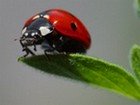
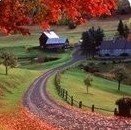
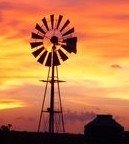
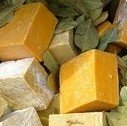
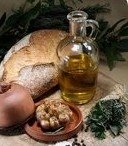
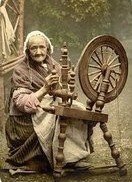
New! Comments
Do you have something of value to add? Leave me a comment in the box below.